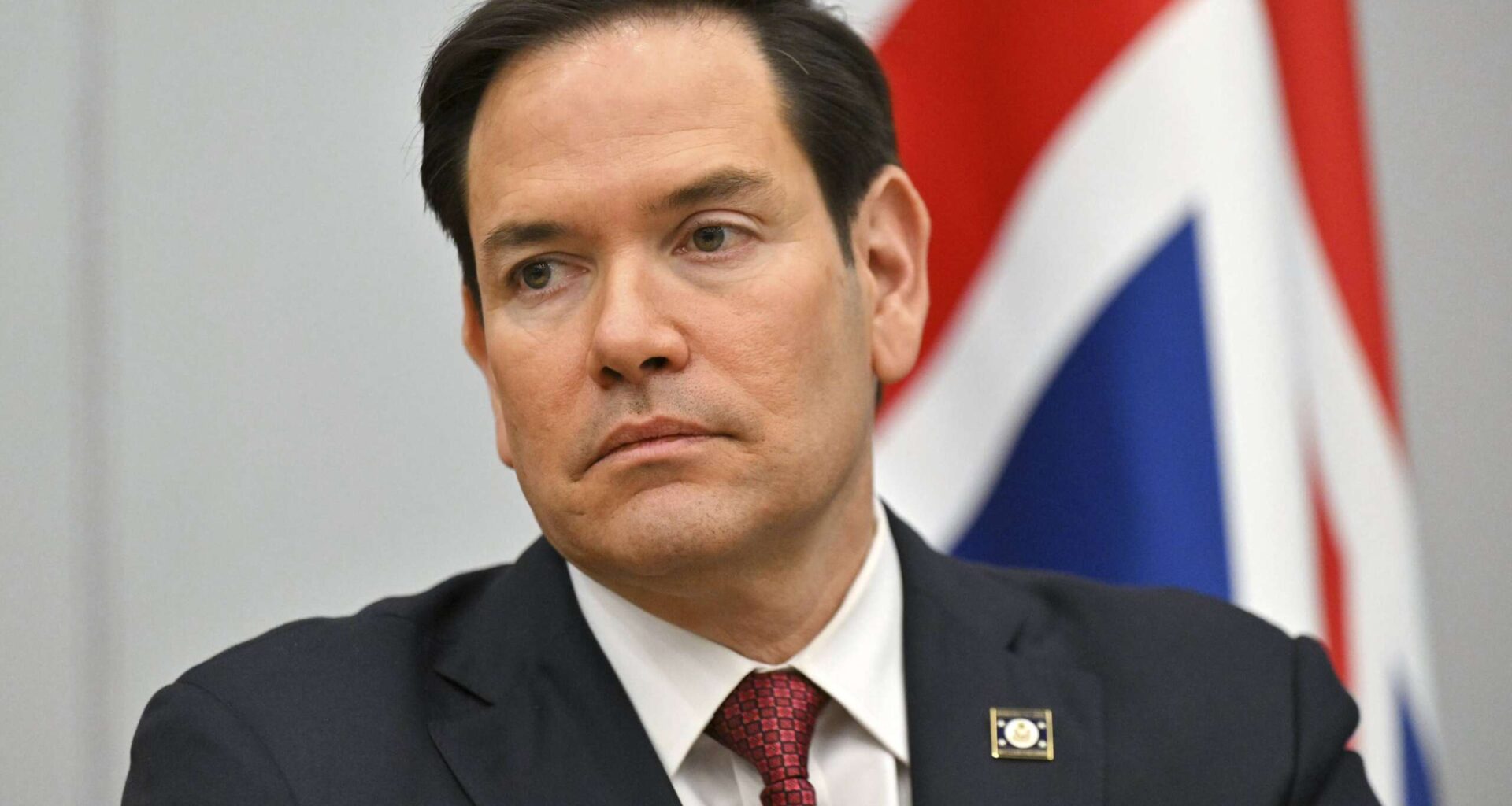Secretary of State Marco Rubio is mostly known for leading the State Department these days.
But his unusual dual appointment as acting Archivist of the United States – and his ability to carry out key record-keeping responsibilities – are also coming under increased scrutiny, most recently as part of the “Signal-gate” controversy.
Leaders in the Trump administration, including Rubio, are currently being sued by nonprofit American Oversight for allegedly violating federal records laws.
Rubio was a part of the Signal thread set up by National Security Advisor Michael Waltz to discuss airstrikes in Yemen. Waltz reportedly enabled a Signal function that allows some messages to be automatically deleted after set time limits.
]]>
The judge in the case has ordered Trump officials to preserve the Signal messages in question.
American Oversight’s initial complaint highlights how Rubio, as acting head of the National Archives and Records Administration, “reasonably should know” that officials did not act to preserve federal records.
“However, defendant Rubio has also failed to act consistently with his independent obligation as acting Archivist to initiate an action for recovery or other redress,” the lawsuit alleges.
The suit asks the judge to order Rubio to refer the potential destruction of federal records to the attorney general.
Lawmakers are also calling Rubio’s role as acting Archivist into question.
In an April 8 letter to Rubio and Attorney General Pam Bondi, Democrats on the Senate Homeland Security and Governmental Affairs Committee call for an investigation into whether officials are skirting records laws by using Signal and other unauthorized communications platforms.
The letter says Rubio should recuse himself and allow NARA to carry out an investigation, including for a potential referral to the Justice Department.
]]>
“As the official responsible for ensuring that the records of government are adequately preserved, it is incumbent upon you to put a stop to any practices at odds with that mission,” they wrote.
NARA did not respond to a request for comment.
Rubio is one of several officials appointed by President Donald Trump to oversee other agencies in dual roles. Rubio himself is in a “triple-hat” role, serving as the Senate-confirmed head of the State Department, while also acting as head of NARA and head of the U.S. Agency for International Development.
Trump appointed Rubio as the acting archivist in February, little more than a week after firing then-Archivist Colleen Shogan.
Jason Baron, a professor at the University of Maryland and former director of litigation at NARA, argues that Rubio should direct his staff to investigate the Signal issue and then recuse himself.
“There’s little evidence to date that acting Archivist Marco Rubio understands the scope of his duties in enforcing the records laws, or is aware of the conflicts of interest that have already arisen during his tenure to date in the position while also serving in as Secretary of State and acting head of the USAID,” Baron said in an interview.
The Signal issue isn’t the first record-keeping controversy of Rubio’s tenure as acting archivist.
In March, top House Democrats pressed Rubio about the “rushed” disposal of records at USAID. They argued his role represents “a fundamental conflict of interest that undermines Congress’s intent with the Federal Records Act and the integrity of NARA.”
“Your triple-hatted role is not only logistically and ethically incoherent, it undermines public trust in all three roles to which you are supposedly devoting the full attention required,” they continued. “NARA requires a fully engaged archivist whose sole focus is maintaining the agency’s vital independent status and essential services which include, as you know, ensuring that veterans have timely access to their service records.”
]]>
NARA is often cited for its role historic preservation role. But the archivist’s responsibilities to oversee federal record keeping requirements are also crucial to Congressional oversight, the Freedom of Information Act, and court cases, according to Lauren Harper, the Daniel Ellsberg Chair on Government Secrecy at the Freedom of the Press Foundation.
“The issue of records preservation and having an effective archivist is not just important for historians, which I think is the common misconception, but has a lot of contemporary implications as well,” Harper said.
Meanwhile, the Trump administration has faced criticism for releasing the social security numbers of several living people as part of the recent JFK declassifications.
Harper said it’s the type of mistake NARA doesn’t typically make. But political pressure to quickly declassify files combined with potential budget cuts could create issues for the agency, she added, pointing out that Rubio has not pushed back against proposed 50% cuts at the State Department.
Harper said a similar cut at NARA would “kneecap” the agency.
“It’s going to completely devastate the National Archives’ ability to monitor and ensure that contemporary records are being preserved, and it also is going to open the possibility that more declassification projects are handled haphazardly,” Harper said.
It’s unclear for how long Rubio will serve as acting archivist. Trump has also installed Jim Byron, former president of the Richard Nixon Foundation, to serve as a “senior advisor” to Rubio at NARA and manage the Archives on a “day-to-day basis.”
Baron said regardless of who is archivist, NARA “should act free of partisan influence.”
“The current situation the acting archivist finds himself in can be cured by President Trump swiftly nominating a professionally qualified archivist for Senate confirmation,” Baron said. “The next archivist should be an individual who is unafraid to exercise independent judgment in interpreting and enforcing the records laws, including taking whatever actions are necessary to ensure that all presidential records are transferred into the legal and fiscal custody of the archivist at the end of this administration.”
Copyright
© 2025 Federal News Network. All rights reserved. This website is not intended for users located within the European Economic Area.
